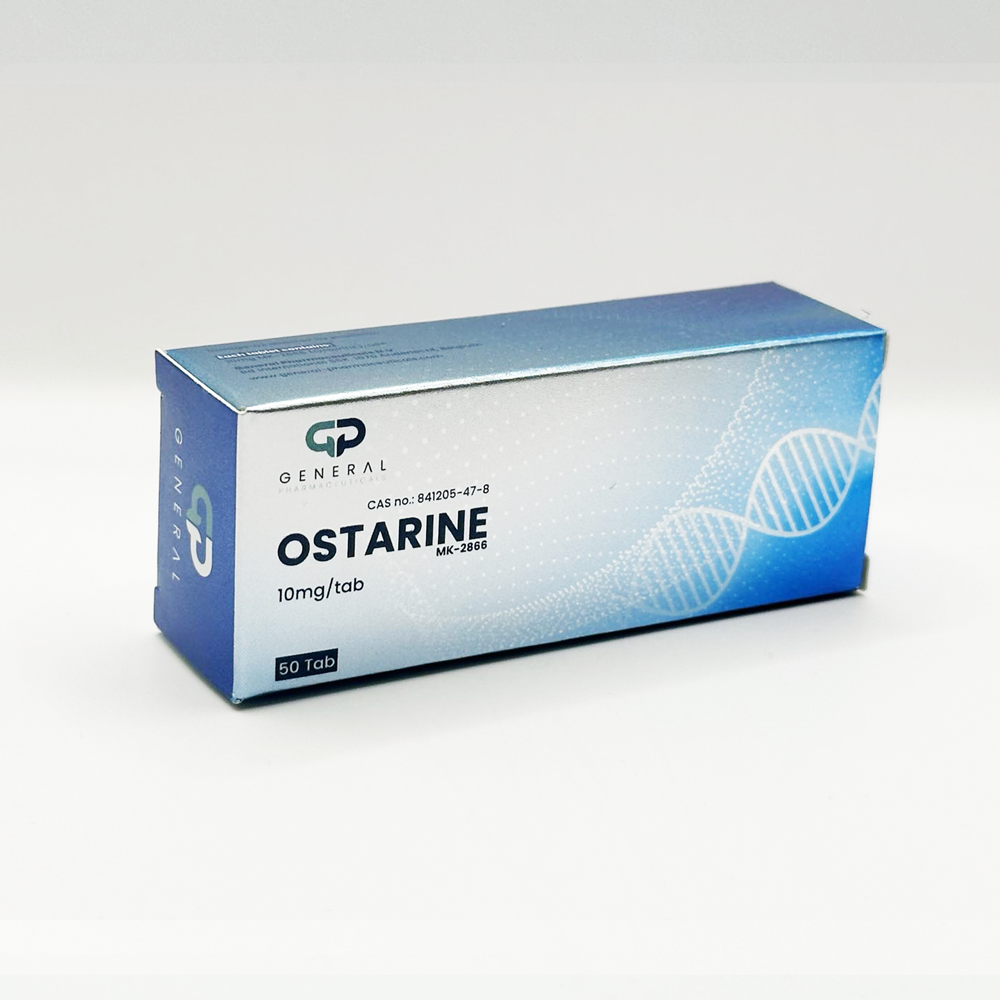
Ostarine (MK-2866)
Ostarine (MK-2866) is a selective androgen receptor modulator (SARM) originally developed for the treatment of muscle wasting conditions and osteoporosis. It is known for its ability to promote lean muscle mass, enhance strength, and improve physical performance while minimizing the side effects associated with traditional anabolic steroids.
Medical Uses
Ostarine has been researched for various medical applications, including:
-
Muscle Wasting Diseases: Helps prevent muscle loss in individuals suffering from conditions such as cancer, HIV/AIDS, and age-related sarcopenia.
-
Osteoporosis and Bone Health: Promotes bone mineral density, reducing the risk of fractures.
-
Rehabilitation and Recovery: Assists in faster recovery from injuries, particularly in athletes or individuals recovering from surgery.
Mechanism of Action
Ostarine works by selectively binding to androgen receptors in muscle and bone tissues, stimulating anabolic activity without significantly affecting other organs such as the liver or prostate. This selective action leads to increased protein synthesis, muscle growth, and improved bone density while reducing the risks associated with traditional steroids.
Side Effects
While Ostarine is generally considered safer than anabolic steroids, potential side effects include:
-
Suppression of Natural Testosterone: Prolonged use may reduce natural testosterone production, requiring post-cycle therapy (PCT).
-
Mild Liver Toxicity: Though not as hepatotoxic as steroids, excessive doses may strain liver function.
-
Hormonal Imbalance: In some users, Ostarine may cause mild estrogenic effects like water retention or gynecomastia.
-
Fatigue and Headaches: Some users report fatigue, nausea, or headaches during use.
Interactions
-
Other SARMs or Anabolic Compounds: Combining Ostarine with other performance-enhancing drugs may increase the risk of side effects.
-
Hormone-Modulating Medications: May interfere with hormone replacement therapy (HRT) or medications affecting the endocrine system.
-
Liver-Toxic Substances: Alcohol and certain medications that stress the liver should be avoided to prevent hepatotoxicity.

